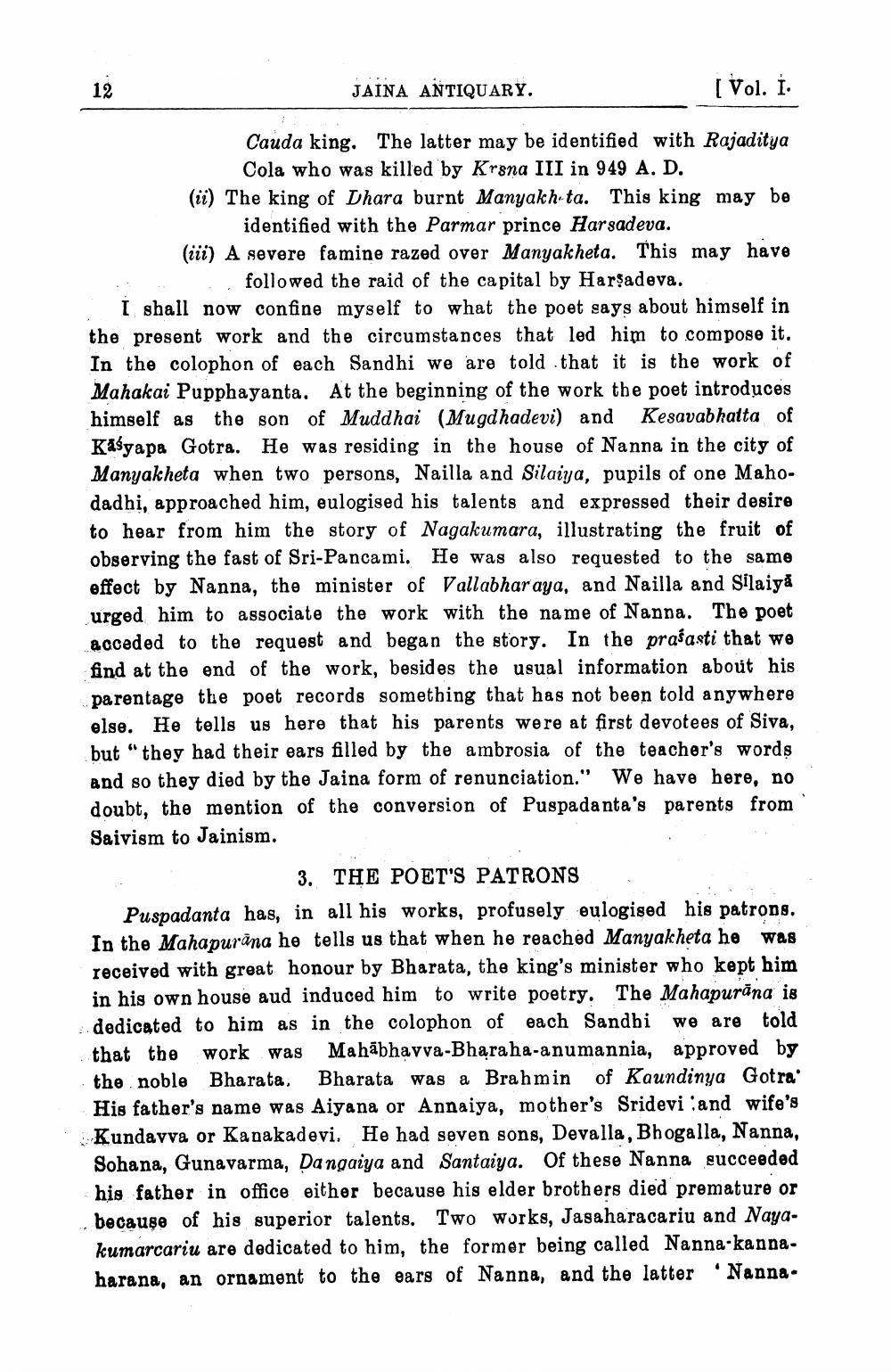________________
JAINA ANTIQUARY.
[ Vol. I.
Cauda king. The latter may be identified with Rajaditya
Cola who was killed by Krona III in 949 A. D. (ii) The king of Dhara burnt Manyakhta. This king may be
identified with the Parmar prince Harsadeva. (iii) A severe famine razed over Manyakheta. This may have
followed the raid of the capital by Har$adeva. I shall now confine myself to what the poet says about himself in the present work and the circumstances that led him to compose it. In the colophon of each Sandhi we are told that it is the work of Mahakai Pupphayanta. At the beginning of the work the poet introduces himself as the son of Muddhai (Mugdhadevi) and Kesavab katta of Kaśyapa Gotra. He was residing in the house of Nanna in the city of Manyakheta when two persons, Nailla and Silaiya, pupils of one Mahodadhi, approached him, eulogised his talents and expressed their desire to hear from him the story of Nagakumara, illustrating the fruit of observing the fast of Sri-Pancami. He was also requested to the same effect by Nanna, the minister of Vallabhar aya, and Nailla and Silaiya urged him to associate the work with the name of Nanna. The poet acceded to the request and began the story. In the prasasti that we find at the end of the work, besides the usual information about his parentage the poet records something that has not been told anywhere else. He tells us here that his parents were at first devotees of Siva, but “they had their ears filled by the ambrosia of the teacher's words and so they died by the Jaina form of renunciation." We have here, no doubt, the mention of the conversion of Puspadanta's parents from Saivism to Jainism.
3. THE POET'S PATRONS Puspadanta has, in all his works, profusely eulogised his patrons. In the Mahapurāna he tells us that when he reached Manyakheta he was received with great honour by Bharata, the king's minister who kept him in his own house aud induced him to write poetry. The Mahapurāna is dedicated to him as in the colophon of each Sandbi we are told that the work was Mahābhavva-Bharaha-anumannia, approved by the noble Bharata. Bharata was a Brahmin of Kaundinya Gotra His father's name was Aiyana or Annaiya, mother's Sridevi :and wife's Kundavva or Kanakadevi. He had seven sons, Devalla, Bhogalla, Nanna, Sohana, Gunavarma, Dangaiya and Santaiya. Of these Nanna succeeded his father in office either because his elder brothers died premature or because of his superior talents. Two works, Jasaharacariu and Nayakumarcariu are dedicated to him, the former being called Nanna-kannaharana, an ornament to the ears of Nanna, and the latter Nanna.




